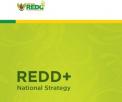- Home
- About
- Campaigns
- Regions
- Themes
- Agrofuels
- Climate justice
- Coastal communities and fisheries
- Disasters
- Economy & debt
- Energy
- Foreign investment
- Forests & forest fires
- Human rights
- Indigenous Peoples
- International Financial Institutions
- Land and food security
- Laws & regulations
- Mining, oil & gas
- Plantations
- Politics & democracy
- REDD
- Regional autonomy
- Transmigration
- Water and dams
- Women
- Publications
- Links
- Contact
Campaign
- Climate Justice and sustainable livelihoods (39)
- Agrofuels and oil palm plantations (31)
- Coal (13)
- MIFEE (4)
- BP - Tangguh (4)
Theme
- Agrofuels (29)
- Climate justice (67)
- Coastal communities and fisheries (33)
- Disasters (15)
- Economy & debt (76)
- Energy (38)
- Foreign investment (116)
- Forests & forest fires (162)
- Human rights (151)
- Indigenous Peoples (163)
- International Financial Institutions (55)
- Land and food security (111)
- Laws & regulations (142)
- Mining, oil & gas (99)
- Plantations (114)
- Politics & democracy (74)
- REDD (30)
- Regional autonomy (55)
- Transmigration (16)
- Water and dams (9)
- Women (34)
Indonesia








